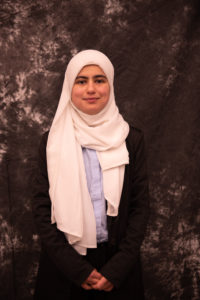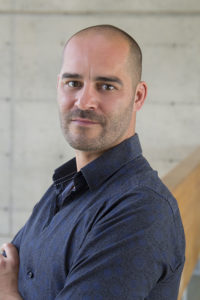For the past eight years, Department of Communication Studies Associate Professor Natalie Coulter has led an assortment of courses at York University, covering themes including advertising, culture, digital media and youth. However, recent accolades have helped to further her efforts in adding to the wealth of knowledge on these connected subjects beyond the classroom.

In summer 2019, Coulter was awarded Insight Development Grant funding from the Social Science Humanities Research Council of Canada (SSHRC) valued at $67,345 to support her latest project, which will run until 2022, studying the creative labour performed by youth within the digital capitalist landscape.
The new research will explore the manner in which the work is encouraged and utilized by corporations to promote intellectual properties – creating simultaneous marketing and target audience roles for youth in the digital age. With a strong research background on the evolving relationships between digital media and youth, Coulter is excited for the project to help paint a clearer picture of children’s cultural industries, particularly as social media, data mining and advertising continue to progress.
With the COVID-19 pandemic altering the original course of action for this SSHRC-funded project, the current focus has been shifted to creating a detailed analysis of select Disney programs over the summer. Alongside Communication and Culture graduate student Tamar Faber, and a pair of ‘junior researchers’ – one of them being Coulter’s 11-year-old daughter – the professor will examine the ways that young people are positioned as content creators.
This component of the study will open larger discussions on their rights as digital contributors and will explore the possible outcomes of raised awareness on the subject among youth. To mobilize the knowledge gained, it will be translated into an essay, and potentially adapted as a video documentary to visualize the findings as well.
Another primary facet of the research plan will break down the motivating factors of this labour process from the corporation perspective, using children and teens as marketers to support financial interests with their participation, through fandoms, social engagement, online involvement and other means. Investigations on the methods used to groom young people to promote products and brands will address gaps in multiple fields of study pertaining to youth and technology.
For the time being, travel restrictions have placed barriers on some of the networking and learning opportunities that would have come from Coulter and Faber attending youth marketing conferences in person. Earlier outlines of the project designated these events as a unique chance not only to build connections with industry professionals, but to engage with the practices and strategies they implement as well. However, accessing this information and establishing these collaborations through alternative methods (such as live webinars) is still a strong possibility.

“Digital media is a huge part of how young people interact with one another. It’s so interwoven in their everyday that ‘real life versus digital life’ for youth is now a false narrative,” Coulter explains. “They’re constantly moving back and forth. In the context of data specifically, now more than ever, young people are harnessed to the needs of the capitalist project. They find modes of resistance, yet still, the creative labour of children’s culture has kept capitalism moving. This is what I’m trying to investigate in my research.”
In January, Coulter was appointed the new director of the Institute for Research on Digital Learning (IRDL) at York University. Five months in, she is excited to widen the scope of the research unit by encouraging more engagement with other collectives specializing in studies on various digital literacies.
With an assortment of previous work on the subject, including books Tweening the Girl: The Crystallization of the Tween Market (2014), Youth Mediations and Affective Relations (2018) (co-edited with fellow Communication Studies Associate Professor Susan Driver), as well as an impressive list of guest chapters, conference papers and journal articles, Coulter has done her part in establishing dialogues on the facets at play. Nevertheless, she acknowledges that more must be done to move forward from dated media literacy learning models.
Years of collaborations with IRDL and teaching at York provide optimism for the future of the field. For decades, the Institute has worked to open countless inquiries on education and technology, and today, it encourages collaborative learning more than ever. In the classroom side of her profession, Coulter is regularly inspired by the students she instructs, both at the undergraduate and graduate level.
“The students at York are so connected globally and internationally, that you don’t have to spend a lot of time convincing them to be critical of the power dynamics of the world. As an instructor, you’re just providing the tools to help them critique. They’re a joy to teach, and I’m always learning from them too.”








































 A major focus of Winfield’s research over the 2020-21 period will be examining the impact of the emergence of populist governments in Canada, United States, European Union and elsewhere on climate change mitigation and low-carbon sustainable energy transition policies. Even before the COVID-19 pandemic, “these developments have highlighted the political fragility of low-carbon transitional strategies in unexpected ways,” he said. They also represent significant threats to the capacity of the global community to respond to the climate change challenge.
A major focus of Winfield’s research over the 2020-21 period will be examining the impact of the emergence of populist governments in Canada, United States, European Union and elsewhere on climate change mitigation and low-carbon sustainable energy transition policies. Even before the COVID-19 pandemic, “these developments have highlighted the political fragility of low-carbon transitional strategies in unexpected ways,” he said. They also represent significant threats to the capacity of the global community to respond to the climate change challenge.



